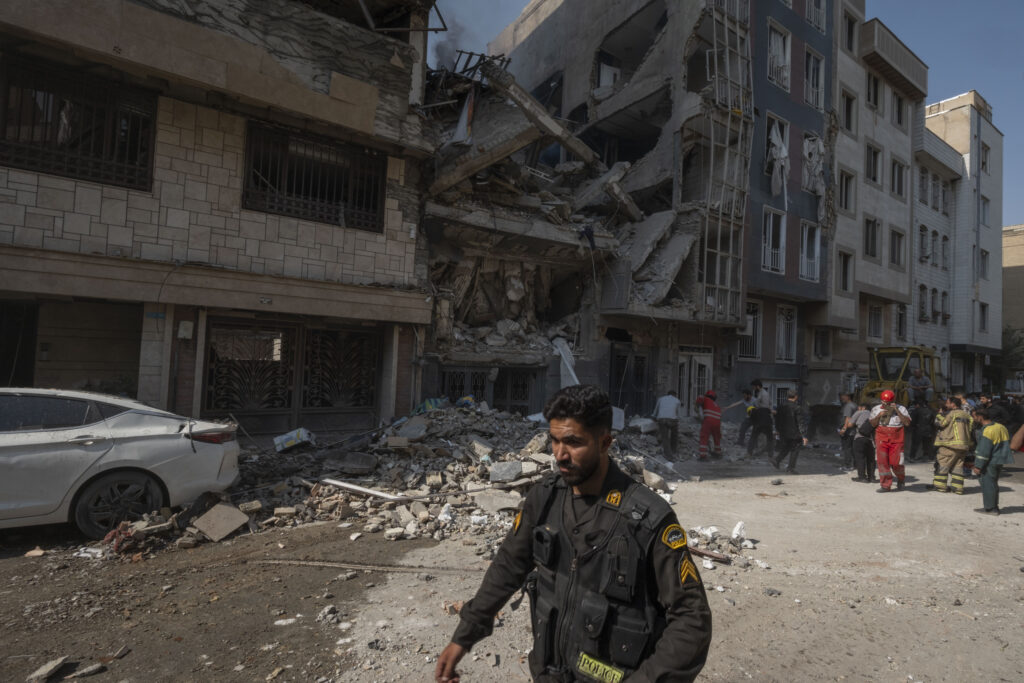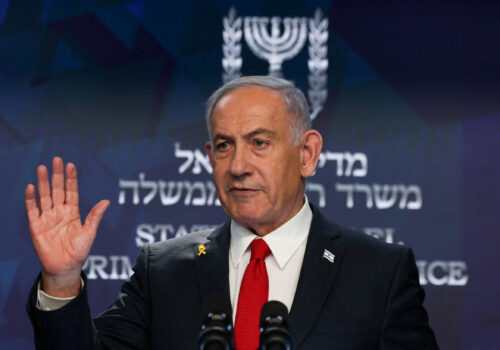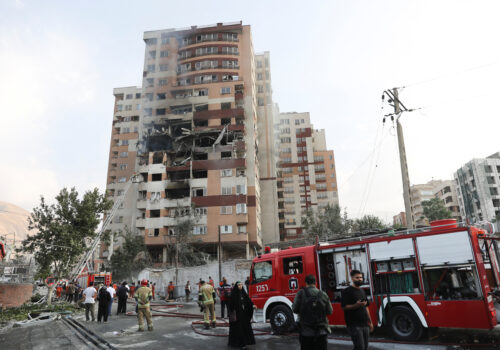There is much we still don’t know about Israel’s strikes on Iran, including exactly what triggered Israel’s action at this particular time, the full scope of their target list so far, their effectiveness against those targets, Israel’s current plans for future phases of this campaign, and its decision matrix for further campaign expansions and escalations.
We will all learn these answers soon enough. In the meantime, we shouldn’t lose sight of what we already do know—or at least what we already can surmise with high confidence.
We know that given the nature of its regime, Iran cannot be allowed to possess a nuclear weapon or to continue to blackmail the world with its capacity to break out and acquire such weapons. This should not be a controversial position, as it has been the consistent policy of every US president for decades, all of whom have threatened to use military force to enforce that policy if other options failed. Indeed, the argument for such a strike has become much stronger over the past year. Four years ago, US President Joe Biden took office prioritizing negotiations with Iran, and four months ago US President Donald Trump decided to do the same. But in each case, Iranian Supreme Leader Ali Khamenei chose not to effectively reciprocate, an unpardonable strategic miscalculation no matter how frustrated he was by Trump’s first-term decision to withdraw from the nuclear deal negotiated by US President Barack Obama. Instead, Iran chose to ignore previously established red lines and directly attack Israel with hundreds of projectiles—twice. It also tried to assassinate Trump and many former members of his administration after they left office—actions that never received the serious attention and response that they deserved. An Iranian regime that makes these decisions can never be allowed to be a nuclear power.
We should assume that Israeli leaders would have interpreted the absence of an American red light as a de facto green light.
We know as well that Iran will respond militarily to Israel’s strikes, notwithstanding the diminishment of its proxies and the likely disruption of key elements of its command-and-control mechanisms. Iran typically prefers to wait to retaliate at the time and place of its choosing. But as Israel’s campaign continues, Tehran will feel pressure to respond quickly, as evidenced already by its initial volley of drones last night. The Israelis know this, so they will try to preemptively eliminate Iranian capabilities to respond militarily. Iran’s reaction likely will include both direct attacks on Israel and retaliation via its remaining proxy groups. However, the obedience of some of those proxies is in question given current circumstances. This conclusion is reinforced by early reports that Hezbollah may be reluctant to follow Iran into another war with Israel.
We also can surmise that US policies have been confused—or, at the very least, have sent unhelpfully confusing messages. Trump and Israeli Prime Minister Benjamin Netanyahu clearly have been unaligned on Iran since the beginning of the second Trump administration, as was evident by Trump’s humiliating treatment of Netanyahu at their more recent Oval Office meeting, the glaring absence of a stop by Trump in Israel during the US president’s recent visit to the region, and the more recent firings of US national security personnel who were perceived to favor a military option against Iran. And yet it seems fair to conclude that Trump decided not to give Bibi a clear “red light” in advance of Netanyahu’s decision to use force against Iran. We should assume that Israeli leaders would have interpreted the absence of an American red light as a de facto green light. We similarly should assume that Israeli leaders would have perceived US actions on Wednesday to protect American personnel as US acquiescence to Israeli agency. But then after the Israeli strikes, while Israeli officials were touting their “full and complete coordination with the Americans,” US Secretary of State Marco Rubio’s statement explicitly distanced the United States from Israel and implicitly called into question the US commitment to defending its partners in the region, both through omission of a mention of that commitment and by only referring to the priority of protecting Americans. Adding to the inconsistency in US messaging, Trump followed Rubio by deeming the strike “excellent”—only to then use social media to urge Iran to make a deal.
And finally, we have long known that it would be more effective, both militarily and diplomatically, for the United States rather than Israel to strike Iran’s nuclear program. The US possesses both platforms and weapons that Israel lacks, including those potentially most useful for the particular targets in Israel’s crosshairs. And while few Arab governments have any real sympathy for the regime in Tehran, they likely will be angered by Israeli unilateralism, worried about the predictable negative reactions of their populations, and especially anxious about Iranian responses that could put them on the front lines of a war they didn’t start. No matter how many distancing statements the US State Department issues, many in the region will associate the United States with Israel’s actions and ascribe a share of blame to Washington for any negative outcomes.
Given what we know, what should we now expect next? It’s always risky to make predictions, especially at such an early stage. But it’s hard to believe that Iran will forgo a robust military response, and it is nearly impossible to believe that the Trump administration won’t seek to equal the effectiveness of the Biden administration in coordinating with regional partners to help defend against that response. As compared with previous tense moments—after the US killing of the Iranian general Qasem Soleimani in 2020 or during the direct Iranian strikes on Israel in 2024, for instance—I would be surprised if Tehran prioritizes what it perceives to be nonescalatory responses. Even if it does, the risk of miscalculation is high. And even if Iran believes its actions aren’t escalatory, it is not certain that Israel or the United States would share that perception.
Furthermore, countless war games over the years have identified many ways in which the United States could be pulled into such a conflict. Potential attacks that kill US personnel, conducted either directly by Iran or through its proxies, is only the most obvious trigger. For instance, if Israeli strikes against Iranian nuclear facilities turn out to be militarily ineffective and instead provide Tehran with an excuse to race toward developing nuclear weapons, then US officials may conclude that their only option is to use military force to prevent this worst-case scenario.
Trump has long signaled his strong objection to the United States becoming involved in another war in the Middle East. He also has repeatedly stressed the importance of the strong relationship between Israel and the United States. It would be deeply ironic if his second term becomes defined by a United States once again at war the Middle East, compounded by divisions between the United States and Israel. At times like these there is no substitute for Washington exercising decisive leadership, rather than waiting to be at the mercy of decisions made by others.
William F. Wechsler is the senior director for Middle East Programs at the Atlantic Council. His last position in the US government was deputy assistant secretary of defense for special operations and combatting terrorism.
Further reading
Thu, May 29, 2025
Five questions (and expert answers) on the state of the Netanyahu government
New Atlanticist By
The Israeli prime minister is facing increasing pressure from within his country and in his government coalition as well as from abroad.
Thu, Jun 12, 2025
Experts react: Israel just attacked Iran’s military and nuclear sites. What’s next?
New Atlanticist By
Our experts shed light on Israel’s major attack against Iran targeting its nuclear facilities and its implications for the region.
Wed, Nov 20, 2024
2025 will be a decisive year for Iran’s nuclear program
IranSource By Danny Citrinowicz
Diplomatic deadlines and regional factors will force Iran to decide soon whether to strike a deal or seek a nuclear weapon. Either choice will have major ripple effects.
Image: An Iranian policeman walks past a residential building that is destroyed in Israeli attacks in Tehran, Iran, on June 13, 2025. (Photo by Morteza Nikoubazl/NurPhoto)



